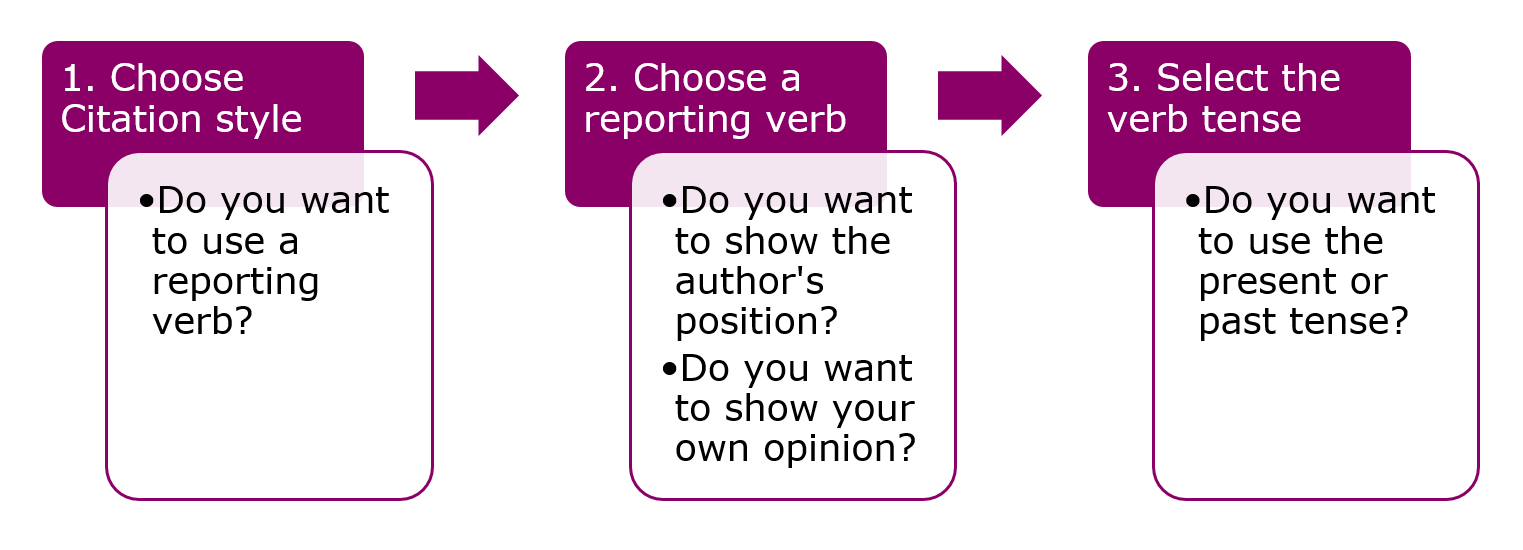Citation style
Idea prominent
When the idea is more important than the author.
Best for: scenarios, webcasts, definitions, concepts from textbooks
How to cite
Effective integration of the 4Ps is vital to a business’ success (Noddy, 2015).
Author prominent
When the author is also very important.
Best for key authors associated with specific theories or frameworks
How to cite
According to Timberlake (2015), market segmentation is …
Timberlake (2015) explains that market segmentation is …
Reporting verbs
A reporting verb is a word used to talk about other people’s ideas in your writing. It is important to understand the function of the verbs because they can show whether you agree or disagree with the author.
Some examples of reporting verbs:
Examples of reporting verbs: affirms, analyses, explains, proves, supports, argues, persuades
Examples of reporting verbs: alleges, doubts, speculates, hopes, questions, comments
Examples of reporting verbs: confirms, expresses, maintains, assures, says, reports, acknowledges
There are many more reporting verbs that you can use in your writing. The University of Adelaide provides further information on types of reporting verbs to include in your writing.
What tenses should I use?
You would normally use the present simple tense in academic work, but you can also use the past tense to discuss events/research that has already taken place.
- Present simple tense – “Smith (2016) explains that sustainability is …”
- Past tense – “Smith (2016) observed that …”


